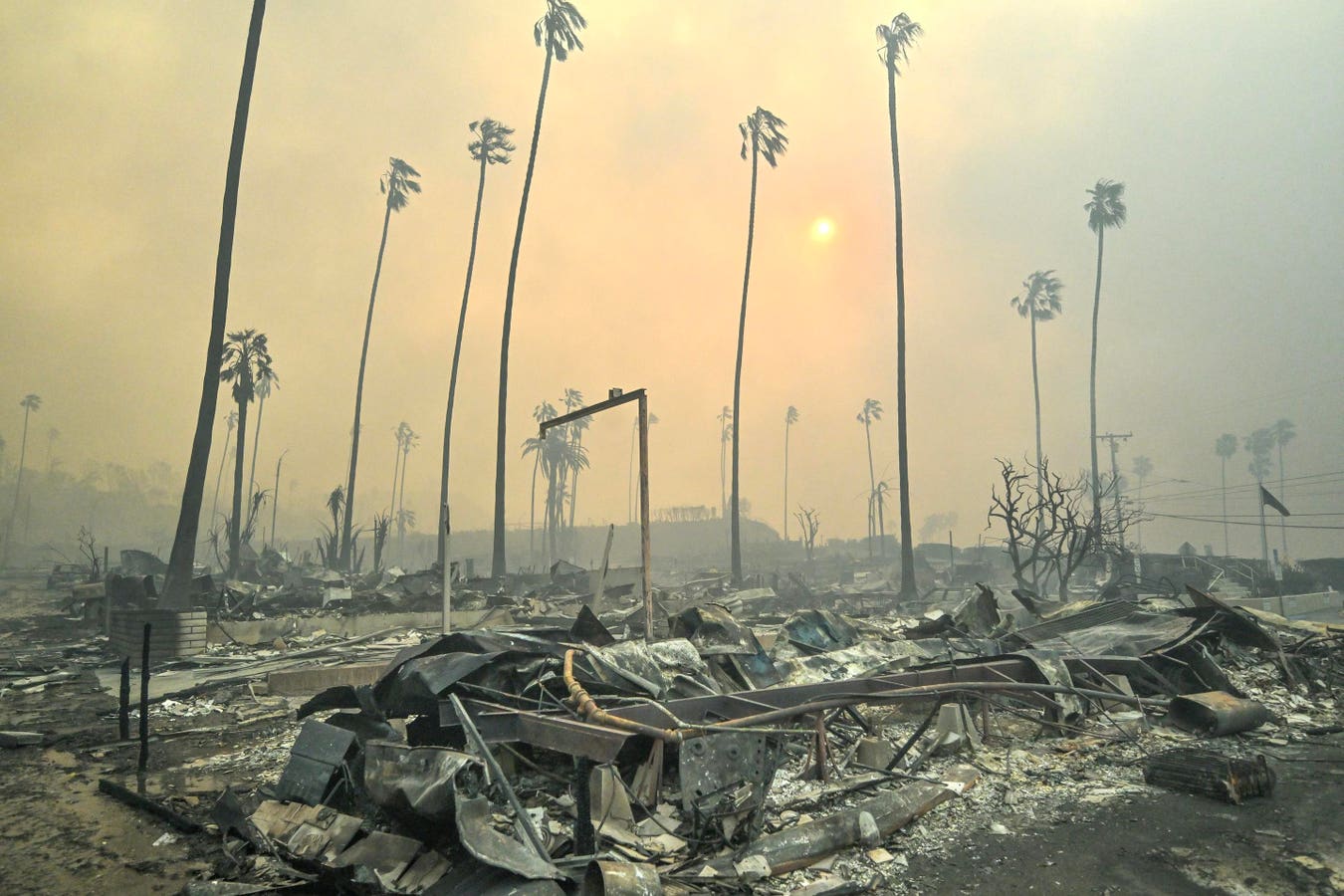Money
How Fire Victims Can Rebuild Without Tax On Their Insurance Proceeds

Navigating Financial Recovery After a Fire: A Guide for Victims
Understanding Insurance Payments and Tax Implications
For many fire victims, the road to recovery is long and fraught with challenges. After suffering devastating losses, the hope of receiving insurance payments can bring some relief, even though legal battles for additional compensation may take years to resolve. The IRS and the California Franchise Tax Board (FTB) have offered tax extensions and other relief measures to fire victims, but the complexity of tax rules can be overwhelming. One of the most critical issues survivors face is understanding how insurance proceeds and lawsuit recoveries are taxed. While some types of payments may be tax-free, others can trigger unexpected tax liabilities. It’s essential to navigate these rules carefully to avoid further financial strain.
Tax-Free Insurance Proceeds: What You Need to Know
Not all insurance payments are treated the same way by the IRS. Certain types of insurance proceeds are tax-free, providing much-needed relief to fire victims. For instance, insurance payments received for temporary additional living expenses, such as rent for temporary housing or replacement transportation, are generally excluded from taxable income. These payments are considered tax-free as long as they are reasonable and necessary to cover expenses incurred due to the loss of your principal residence. Additionally, if the wildfire was a federally declared disaster, insurance proceeds that replace personal property, such as clothing, furniture, and household goods, are also tax-free if the home was your primary residence. These exemptions can provide significant financial relief during an already difficult time.
Insurance Proceeds and Property Damage: Understanding Tax Implications
While some insurance payments are tax-free, most proceeds have tax implications that fire victims need to understand. Under normal tax rules, payments received for damaged or destroyed property are treated as sales proceeds. This means that the amount of tax you owe depends on your tax basis in the property (the original purchase price plus any capital improvements) rather than the property’s fair market value at the time of the loss. For example, if you purchased a home for $1 million and received $3 million in insurance proceeds after it was destroyed in a fire, the IRS would view the $2 million difference as a taxable "casualty gain." This can feel unfair because you are simply being reimbursed for your loss, but the tax rules treat it differently.
The Principal Residence Exclusion: A Safety Net for Homeowners
For homeowners, there is some good news. If insurance proceeds for your home exceed your tax basis, you may qualify for the principal residence gain exclusion. This exclusion allows you to shield up to $250,000 (or $500,000 for married couples filing jointly) of the gain from taxes. This can significantly reduce your tax liability, especially if your insurance payout is substantial. However, any amount exceeding this exclusion may still be subject to capital gains tax. It’s crucial to work with a tax professional to ensure you take full advantage of this exclusion and other available tax benefits.
Deferring Taxes with Section 1033: A Lifeline for Fire Victims
One of the most powerful tools available to fire victims is Section 1033 of the tax code, which allows property owners to defer taxes on casualty gain by reinvesting insurance proceeds into the repair, reconstruction, or replacement of damaged property. This provision can provide significant tax relief, but it comes with strict timing rules. Generally, you have four years from December 31 of the tax year in which the wildfire occurred to reinvest the proceeds. However, this deadline can be problematic if insurance payments are spread out over multiple years or if lawsuit recoveries are delayed. For example, if you receive a portion of your insurance payout in one year and the remainder in a subsequent year, the four-year deadline may already have passed for the initial payment. This can create complexities and limit your ability to defer taxes. Despite these challenges, Section 1033 remains a vital option for fire victims, allowing them to delay paying taxes on casualty gain until the property is sold in the future.
The Importance of Professional Guidance
The tax rules surrounding fire losses are inherently complex, and even determining whether a payment is tax-free can be challenging. The rules for claiming casualty losses are equally complicated, and some wildfire settlements may be tax-free, depending on the circumstances. Given the emotional and financial toll of a wildfire, it’s essential to seek professional guidance from a tax expert or attorney who specializes in disaster relief. A qualified professional can help you navigate the intricacies of the tax code, ensure compliance with all deadlines and requirements, and maximize your financial recovery. With the right support, you can focus on rebuilding your life while minimizing the risk of unexpected tax liabilities.
Key Takeaways for Fire Victims
For fire victims, understanding the tax implications of insurance payments and lawsuit recoveries is crucial to avoiding financial pitfalls. While some payments are tax-free, others may trigger taxable gains. The principal residence exclusion and Section 1033 deferral election offer valuable opportunities to reduce or defer tax liabilities, but their complexity requires careful planning and professional guidance. By staying informed and seeking expert advice, you can make informed decisions that protect your financial future and support your recovery journey. Remember, you don’t have to navigate this process alone—there are resources and professionals available to help you rebuild and move forward.


















